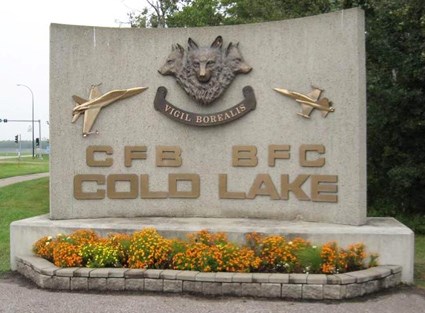Canada will officially be ceasing air strikes as of Feb. 22, but what that means for members of the Royal Canadian Air Force, including those from 4 Wing Cold Lake, is still up in the air.
On Feb. 8, Prime Minister Justin Trudeau announced that Canada will be changing its tactics regarding the crisis in Iraq and Syria. Keeping with his election promises, in less than a week the country's CF-18s will be pulled out of the bombing mission against ISIS.
“As confirmed by the Prime Minister, the Canadian Armed Forces will cease air strike operations no later than Feb. 22. This will affect up to six CF-18 Hornet fighter aircraft and CF-18 associated aircrew and support personnel,” read a statement from the Department of National Defence.
It went onto say, “The CAF continues to work on its plan for the departure of those aircraft and related personnel from Operation Impact. Therefore, it is premature to discuss those details and any associated impacts at their home bases.”
The bombing mission, known as Operation Impact, is one that members of CFB Cold Lake have been involved with since late 2014 when CF-18s first departed the base. Over the course of their involvement, units from 4 Wing have deployed twice to Operation Impact.
“The first rotation, or Roto-0, we sent 409-tactical fighter squadron. The latest rotation, which was Roto-2, we sent 401-tactical fighter squadron,” explained Lt. Matt Strong, Public Affairs Officer with 4 Wing Cold Lake. “They left in October 2015. The plan was to keep them there for six-months, but that's since changed and we don't know when they'll be back.”
While air strikes are being called off, Canada will be continuing with Operation Impact until the end of March 2017. Under a new approach, approximately 830 military personnel will be involved, up from approximately 650 currently. Canadian Armed Forces (CAF) members will assist in operational planning, targeting and intelligence, along with CAF medical personnel who will be deployed to provide training to Iraqi security forces in casualty management.
Canada will continue to offer some air contributions by maintaining one CC-150 Polaris air refueling aircraft and up to two CP-140 Aurora aerial surveillance aircraft, along with associated aircrew and support personnel.
“Our new policy in Iraq, Syria, and the surrounding region reflects what Canada is all about: defending our interests alongside our allies, and working constructively with local partners to build real solutions that will last. We will work with allies to defeat ISIL and the terrorist threat it represents,” said Trudeau. “At the same time, we will help address the needs of millions of vulnerable people while helping lay the foundations for improved governance, economic growth and longer-term stability.”
Approximately $264 million will be allocated towards these efforts, along with an additional $41.9 million for redeployment of personnel and equipment in 2017.
As the federal representative for the area that includes the home of Canada's fighter pilot, Fort McMurray – Cold Lake MP David Yurdiga made his concerns with the new tactics known.
“The purpose of Operation Impact is to halt and degrade the so-called Islamic State of Iraq and Syria (ISIS) in Iraq and Syria. The air strikes provide much needed air support for the troops that are battling ISIS on the ground.”
According to Yurdiga, as of Feb. 3 Canada's CF-18s have successfully taken out 249 ISIS fighting positions, 83 ISIS equipment and vehicles and 24 ISIS improvised explosive device factories and storage facilities. In a release from the local MP, it states that Trudeau's decision is based off of mislead ideals.
“The issue with ISIS and Trudeau's comments are that you can't reason with a murderous death cult, and until they are destroyed millions of people will continue to be displaced in the Middle East,” the Feb. 9 release reads.
While the decision to cease air strikes has been made, Strong explained that they're still waiting to hear about the next course of action. Canada's military will be providing a number of recommendations to the federal government, who will then determine what the plan will be moving forward.
“We don't know exactly what that means for us; when people are coming home, if they're coming home, where the jets are going from here – they might come back here or they might not. It's in the hands of Ottawa to decide right now.”
With the CF-18s mission ending no later that Feb. 22, more details are expected to be released within the next two weeks.



